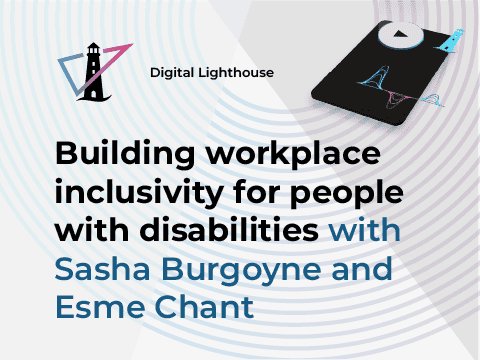
The topic of work-life balance has come up in a few conversations recently, where I’ve been asked how I keep a balance having a busy job as Delivery Director for Softwire’s private-sector portfolio, as well as a young family. I’ll tell you the answer, I promise, but not just yet!
Earlier in my career I used to try to establish a so-called “work-life balance” as I understood it, and, simply put, this created stress for me that completely defeated the point of what I was trying to achieve.
How I perceived work-life balance in the past
From early in my career I felt constantly blasted by posts on LinkedIn about why my work-life balance was “wrong”, and what I should be doing instead.
We’ve all seen those posts from successful business influencers telling us “you’re failing if you aren’t able to stop working at 5pm” or “something is wrong if you use an hour on Sunday to plan your week”. And the flip side: “Here’s my daily routine starting at 5am that’s made me so successful”. Some of these types of posts were coming from people I really respected, and there’s no doubting what they’ve achieved however they got there. So then came my thoughts: is that what I need to do to be successful? Am I “wrong” if I’m not doing these things?
I also saw people in leadership positions ending up in sticky situations regarding their work-life balance, and the negative impacts of that on their health.
The word ”balance” implies this mythical split where work and life sit in this equal equation on a set of scales. The problem I had with this is that at any given point in time, either personal life or work might need more from me than the other does. In my head, at these moments there was a voice telling me “You are failing! Everyone is talking about living this perfect balance and you are not”.
I felt huge pressure to show I had both a healthy personal life and the experience needed to progress into leadership roles. I then often ended up in this odd position of feeling guilty when choosing to invest in my career, or taking time to focus on my personal life, because I thought that the “balance” I was supposed to have achieved had disappeared.
The a-ha moment: Balance isn’t about the day-to-day, it’s about the larger picture!
I was then lucky enough to attend a leadership course where a speaker opened my eyes to my problem; this was an epiphany moment, where what “work-life balance” means suddenly clicked for me.
So what was that golden nugget that prompted me to reassess?
“Maintaining a balance is an unnecessary stress as most of the time throughout your life you will need to give one more attention than the other. And that is okay as long as you can recognise where you need to give and take”.
Simple, right? And I am sure most people reading this think this is obvious; but for me, it had never clicked, and without someone saying it so clearly, I don’t think it would have until a point where it was too late for me to help myself.
So what’s my answer to how I maintain a healthy work-life balance? Simply: I don’t try to!
Okay, so if you’re not going to maintain a balance, how do you ensure one side doesn’t take over the other?
My own struggle has always been how to stop work taking over everything else. I have always experienced that interesting mix of ambition combined with imposter syndrome, meaning I can find it hard to switch off. And it’s all too easy for me to prioritise a work request to feel like I’m not letting people down, or to demonstrate the added commitment which in my head I need to bring to the table to deserve my role.
Meeting my now-wife, and then my two beautiful daughters coming into the world, made this mental battle even harder for me, because those thoughts that drive me – and my career – don’t go away. But a shift in priorities hit near enough overnight. I found this difficult, because in this “balance” neither side seemed to be getting the focus I wanted to give. The key thing was realising: well, if I’m not going to maintain this mythical balance any more, how do I ensure I don’t burn out or begin to resent work taking over my life?

My red lines, and how I now achieve my best version of work-life balance
I asked this on the leadership course; and happily it was a question the speaker had come prepared for.
“Instead of thinking of it as a balance, identify the key red lines for you. Then ensure you maintain these. It is ok to occasionally have to be flexible here, but that should be the occasion rather than the norm. Then make it clear to the people you work with what these red lines are and what you need to be able to maintain them”.
A great example of this for me relates to my children: I have a red line that I won’t let work make me miss bedtime, unless it is something like a critical meeting or a pre-arranged trip away.
But what does this mean in practice? As an example, my team and colleagues know not to put a non-critical meeting in my diary after a certain time of day if I can’t dial into it from my phone on the train. Or if it is something that isn’t urgent, I ask colleagues not to feel offended when their “Have you got 15 minutes to look at this?” gets a response of “Not right now, sorry, but I will pick it up later”.
I find that in the vast majority of cases this work really well, and people respect my red line. As long as I show flexibility it’s been easy to implement. However, it’s crucial to consider each situation one by one to avoid a scenario where someone has something truly urgent but feels they cannot talk to me about it.
As ever, context is key, and on occasion, I will let my red line be crossed. But doing this consciously is the important part, because this is how I can ensure crossing the line is the exception rather than the norm.
Do I feel like I get this right every time? Absolutely not! Do I find it easy? No!
I love my job and the team I work with, but that doesn’t mean choosing to let my red line be crossed is easier when it happens. Knowing I’m not going to be home in time to say goodnight to the kids, or turning down or delaying something at work when I could easily “just do it” and give up on my red line, both feel like tough situations when they happen. It’s hard to tell a colleague that what is urgent for them is not a priority for me. (The key I find here is having a candid conversation so I can explain my reasoning; I will always try to offer a different solution where I can).
When work needs to take more of my time and focus, I find I can mentally deal with the tension more easily if:
- I am honest with myself that breaching my red line is needed
- I am sure that the situation won’t overly encroach on my personal life for any significant period
Furthermore, when I see this type of thing coming, I make sure to tell my family what’s going on so I know they understand. I have an amazing and supportive family who would understand whether I explained myself or not, so this is more a psychological preference for me.
I also find that maintaining my red line allows me to do a better job, as it forces clear prioritisation in the open, or challenges those around me where their thinking differs. For example, that report that appeared on your desk last minute needs review and sign-off: does that really need to be today? Most of the time no. I work for a great company where everyone is conscious of the pain of short-notice requests, so if the answer is yes for some reason then, as above, making a conscious choice to do the extra work and sacrificing some family time means I feel the cost rather than letting my boundaries silently erode away.
In an example like the above, making this conscious choice to step over my red line forced me to think about things like:
- Why have I got the report late in the day?
- Does the other person understand they need to be sharing earlier? I would rather see something imperfect early and iterate together
- Does the person need any support? Because often if you’re seeing a pattern of late-notice requests this can be due to stress or high workload
- Or maybe the person doesn’t understand the impact of their behaviour. In all cases, you helping that person will only be a positive for you, them and the wider team
In reality, I think how people manage their work-life balance is a personal thing, and what works for one person won’t work for another. Reality is rarely as black and white as the examples I have given above; but hopefully this article was helpful to people out there who, like me, have struggled with the concept of balance.


